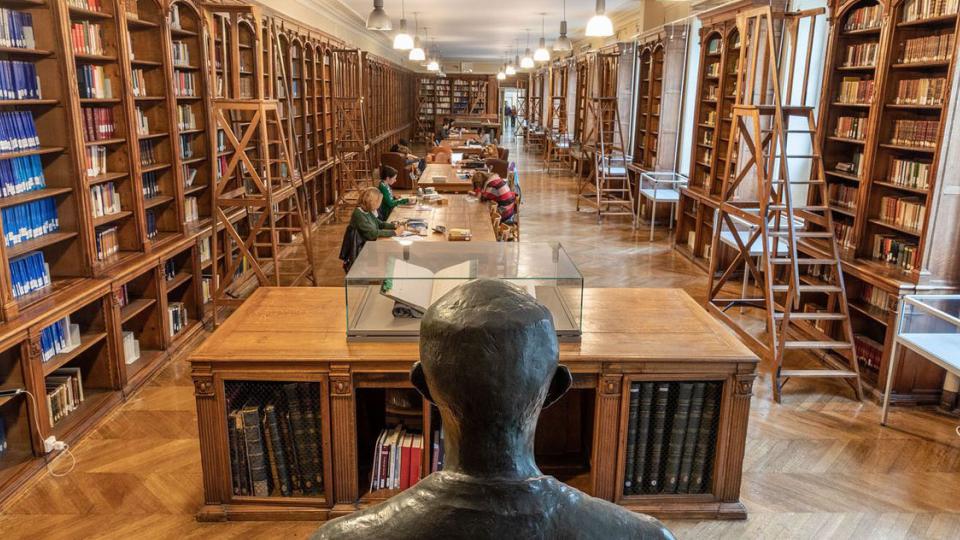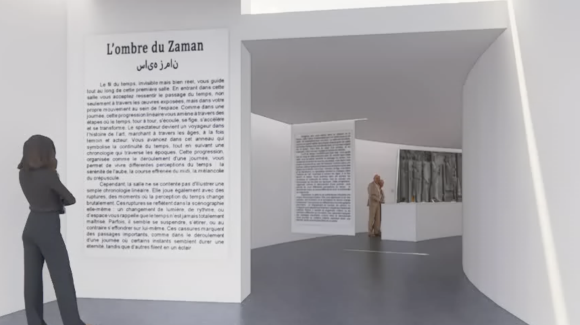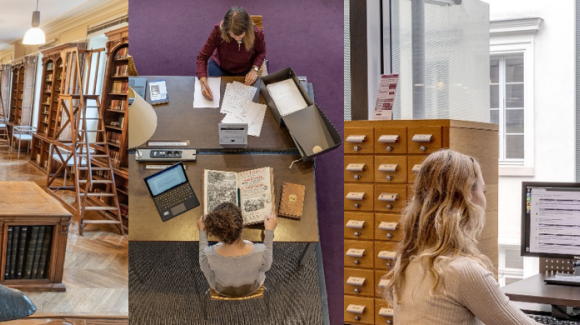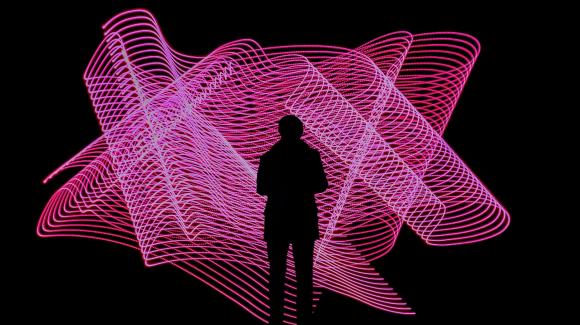
News
"From research corpus to digital project": registration open
By
Published on
2 February 2023
, updated on
26 March 2023
Image

The Observatoire des humanités numériques is offering a new course for the second semester (6 ECTS): "From the research corpus to the digital project: an initiation by example". It is based on the new ENS-PSL research project, Archives normaliennes.
The Archives normaliennes project
History is built on the basis of manuscripts, archives and artifacts, and the history of scientific disciplines, understood in the broadest sense (including the humanities and social sciences), is no exception. Because it has long been involved in preserving archives, the ENS-PSL plays a role in the way its own history can be written today and how it will be written tomorrow according to its choices of conservation, classification and exploitation of its own archives. But it can also aspire, by drawing attention to the archives of the École Normale Supérieure, to show that its history is not only that of an institution but of all the men and women who have been trained there and/or who have carried out their research and/or taught there.
The ENS-PSL has a long tradition of preserving some of these archives, but they are scattered throughout its libraries and laboratories. Some departments also keep archives, or even scientific instruments of historical interest, which they emphasize are invisible and difficult to preserve, even if some of these textual and material collections have been inventoried by professional archivists. On the other hand, the Caphés also keeps archives that are related to the history of science without any link with the school or its former students. On the other hand, a great number of the archives of the Normaliens are not kept at the ENS. Locating and contributing to the study of the archives of the École Normale Supérieure is therefore a project that makes sense for the history of the school and its place in society, but which does not exactly overlap with the missions of the Caphés.
The idea of the Archives normaliennes project would therefore be :
- to reflect collectively on the best way to coordinate the actions of the various actors involved in the management of archives and digital humanities projects concerning them, and to make these projects visible. It would therefore be necessary to create a scientific council that would bring together the actors interested in the issue of the Normandy archives.
- to relaunch projects for the scientific exploitation of these archives, projects that would be hosted on a site when they are part of the digital humanities and inventoried on a site when they are part of paper publications.
- to map on a website, in an organized and readable manner, the physical and digital sites where archives relating to the history of the school and its alumni are kept or distributed, i.e., by going beyond the logic of websites specific to each department and the presentation of their resources fund by fund.
- de réfléchir collectivement à la meilleure manière de coordonner les actions des différents acteurs impliqués dans la gestion des archives et les projets d’humanités numériques les concernant, de rendre visible ces projets. Il s’agirait donc de construire un conseil scientifique rassemblant les acteurs intéressés par la question des archives normaliennes.
The project-based course
In the same way that the course "From research corpus to digital project: an initiation by example" has allowed to build and develop the Digital Viau project, the sessions of this second semester will be the occasion to lay the first stones of the Archives normaliennes project. The course will be an opportunity to work on these archives, through one or more ENS fonds, and to conduct complementary research on relevant sources outside the ENS.
As the course is a workshop, the students will be asked to define a question that could be approached from the archives of the ENS (in particular the CAPHES or the library) or from theArchives nationales and be the object of a treatment using digital tools. These archives shed light on a part of the history of teaching and research that is less well known than one might imagine. They can also be used to study the career or working methods of a researcher whose archives have been preserved.
Involving researchers from different departments and laboratories, as well as Library staff, the sessions will combine the work of researching and building the corpus with learning about the tools that allow for their digital valorization: the Omeka CMS, the Heurist database builder, online editorialization tools, and Huma-Num's Nakala warehouse service, which allows for the publication of online archives.
Practical information
- The sessions take place on Mondays from 5 to 7 pm, every two weeks, during the second semester, in the conference room of the Data Science Center (45 rue d'Ulm, staircase B or C, 3rd floor).
- Registration: lea.saint-raymond@ens.psl.eu
- Course validated for the ENS diploma: 6 ECTS
- First session on Monday, February 13 with an introduction to Omeka



Be the first to review this item, please login or register.
Sign-inRegister